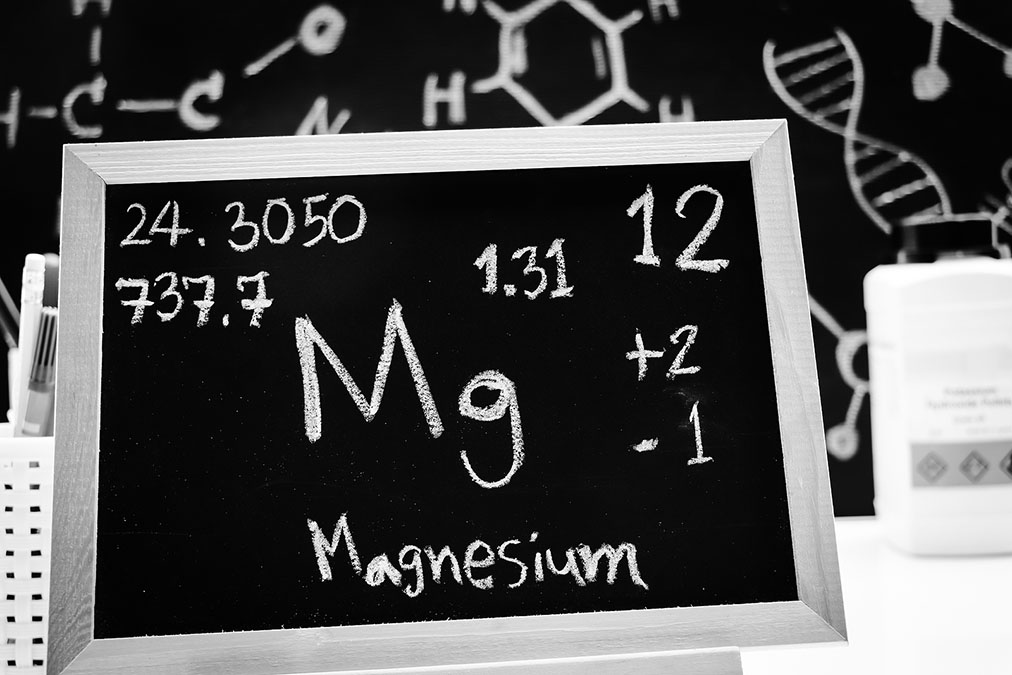 One mineral has been linked in several studies to better brain function and smaller risks of dementia and Alzheimer’s disease.
One mineral has been linked in several studies to better brain function and smaller risks of dementia and Alzheimer’s disease.
How effective is this mineral, and how much is enough?
That’s a question that a new study in the European Journal of Nutrition attempted to answer.
Researchers from the Australian National University enrolled 6,001 participants from the UK Biobank database, all aged between 40 and 73. For each participant, the researchers had two blood pressure measurements, MRI brain scans, and dietary magnesium intake measured with a 24-hour recall questionnaire, completed several times to minimize error.
The most important finding was that higher magnesium intake at the beginning of the study was associated with larger brain volumes, including gray matter, the left hippocampus, and the right hippocampus.
Participants who consumed more than 550 milligrams of magnesium daily had a brain age about a year younger by the time they turned 55 than those who consumed only 350 milligrams.
This means that increasing magnesium intake by 58% can reduce age-related brain shrinkage, which is associated with better cognitive abilities and a decreased risk of dementia.
This finding held true for all subgroups but was stronger for women than men and stronger for postmenopausal than premenopausal women.
When the scientists calculated the participants’ magnesium intake trajectory, they identified three groups: high-decreasing, normal-stable, and low-increasing. The relationship was especially strong in the first group, confirming the finding that high magnesium intake boosts brain function and reduces dementia risk.
Foods high in magnesium include dark chocolate, spinach, avocado, banana, nuts, legumes, pumpkin seeds, sunflower seeds, salmon, mackerel, and brown rice.

 Multiple Sclerosis
Multiple Sclerosis Banishing Bronchitis
Banishing Bronchitis Gum Disease Gone
Gum Disease Gone Overcoming Onychomycosis
Overcoming Onychomycosis Neuropathy No More
Neuropathy No More The Prostate Protocol
The Prostate Protocol Brain Booster
Brain Booster
 Ironbound
Ironbound
 Solution for Shingles
Solution for Shingles
 The Bone Density Solution
The Bone Density Solution
 The Ultimate Healing Protocol
The Ultimate Healing Protocol
 The Parkinson's Protocol
The Parkinson's Protocol
 The Chronic Kidney Disease Solution
The Chronic Kidney Disease Solution
 Overthrowing Anxiety
Overthrowing Anxiety The Fatty Liver Solution
The Fatty Liver Solution The Hypothyroidism Solution
The Hypothyroidism Solution
 The End of Gout
The End of Gout The Blood Pressure Program
The Blood Pressure Program
 The Oxigized Cholesterol Strategy
The Oxigized Cholesterol Strategy
 Stop Snoring And Sleep Apnea Program
Stop Snoring And Sleep Apnea Program
 The Arthritis Strategy
The Arthritis Strategy The Vertigo & Dizziness Program
The Vertigo & Dizziness Program The 3-Step Diabetes Strategy
The 3-Step Diabetes Strategy Hemorrhoids Healing Protocol
Hemorrhoids Healing Protocol The Erectile Dysfunction Master
The Erectile Dysfunction Master Weight Loss Breeze
Weight Loss Breeze The IBS Program
The IBS Program The Insomnia Program
The Insomnia Program The Migraine and Headache Program
The Migraine and Headache Program The Neck Pain Solution
The Neck Pain Solution The Menopause Solution
The Menopause Solution The Ejaculation Master
The Ejaculation Master The TMJ Solution
The TMJ Solution The Acid Reflux Solution
The Acid Reflux Solution The Fibromyalgia Solution
The Fibromyalgia Solution The Psoriasis Strategy
The Psoriasis Strategy